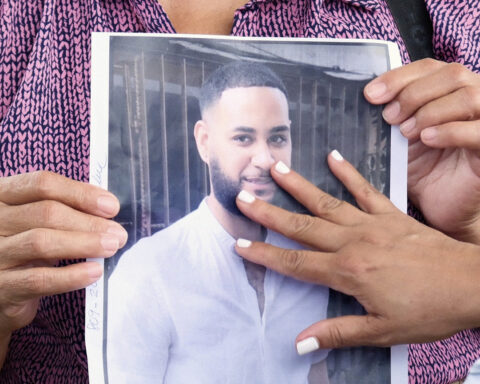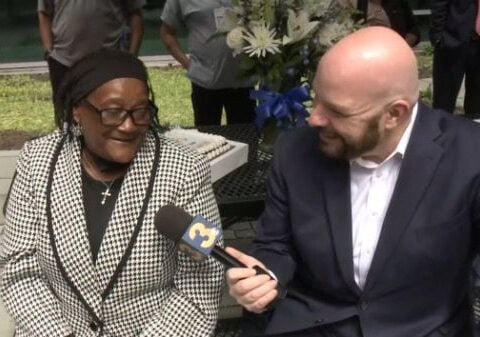Taylor Paré entered the small East Village restaurant, expecting to meet the handsome suitor she had matched with on a popular dating app. After primping all evening before the highly-anticipated date night, Ms. Paré arrived eager to see if this digital match could transfer into real-world chemistry. But following 15 minutes alone at the table checking her phone, it became clear she had been stood up. Or so it seemed.
The man had suddenly unmatched her on the dating app as she waited. Suspicions arose about the restaurant's possible involvement when Ms. Paré later saw other women report similar experiences at the same eatery. Her disappointment soon shifted to outrage at the notion this local business had posed as an interested singleton, luring her in under false pretenses in order to profit off her patronage.
"Dating in New York City really is like the Hunger Games," said Ms. Paré, 33, a vintage fashion curator in Manhattan. "Restaurants are using deception on apps as a tactic to increase their business. It's dystopian." She enjoyed her $45 solo meal but left troubled by the duplicitous digital dating culture thriving in New York.
This kind of culinary catfishing has become another obstacle singles face finding love in the post-pandemic era. Some restaurants rent their kitchens to delivery-based pop-up eateries called "ghost kitchens," without being transparent about the arrangement on food ordering platforms like GrubHub and UberEats. Customers then get meals from unknown vendors using trendy, AI-generated names, unaware of the true supplier.
Now it appears some restaurants or their ghost kitchen tenants are applying this dubious practice to dating apps as well. Creating fake profiles allows them to pose as interested singles, initiate flirtatious conversations, and suggest meeting at their establishment for a first date.
"They cut straight to the point and ask to meet up for a nice meal," said Ms. Paré about the deceptive online suitors. "I liked that they didn't invite me to some s--tty bar, and I was like, 'Yeah, let's go!'"
Butupon arriving for the date, the person has unmatched on the app, leaving their unwitting target waiting alone - yet already inside the restaurant as a paying customer.
Sarah Stusek, a content creator, revealed in a viral TikTok video how she uncovered the deception behind a trendy burger spot called "Burger Den" on an ordering app, only to discover through the listed address it was actually just her local Denny's.
"I refuse to order from ghost kitchens out of principle," said one commenter, "like how dare you try to bamboozle me."
The growth of ghost kitchens exploded during pandemic lockdowns as a way for struggling restaurants to augment their revenue through delivery apps. But their use of artificial intelligence and automation to generate hyper-specific new identities has now seeped into dating platforms as well. The lack of transparency around who actually operates these digital storefronts enables exploitation.
For singles like Ms. Paré already navigating the high-stakes world of online dating, restaurants posing as romantic interests feels like another case of digital deception gone too far. She had hoped modern matchmaking technology could help find someone genuine, but instead encountered stale leftovers of fraud.
"In a world full of so much mess, it's important to know exactly what you're getting - whether it's a man or a meal," she remarked. "This is such a shame. Women in New York have to be wary of lies coming from men, but now it seems we have to worry about the restaurants too."
The national trauma of isolation during Covid lockdowns pushed digital dependency to new levels. But instead of using technology to foster human bonds, restaurants are coopting innovations like AI for exploitation. And as more facets of life and love migrate online, the avenues for manipulation only multiply.
For Ms. Paré and countless other singles,apps promising emotional connections brought only hollow consumption instead - underscoring the internet's limitations in replicating intimacy. Where trust and understanding should thrive, false identities dominate behind lifeless screens.

 Trump has begun another trade war. Here's a timeline of how we got here
Trump has begun another trade war. Here's a timeline of how we got here
 Canada's leader laments lost friendship with US in town that sheltered stranded Americans after 9/11
Canada's leader laments lost friendship with US in town that sheltered stranded Americans after 9/11
 Chinese EV giant BYD's fourth-quarter profit leaps 73%
Chinese EV giant BYD's fourth-quarter profit leaps 73%
 You're an American in another land? Prepare to talk about the why and how of Trump 2.0
You're an American in another land? Prepare to talk about the why and how of Trump 2.0
 Chalk talk: Star power, top teams and No. 5 seeds headline the women's March Madness Sweet 16
Chalk talk: Star power, top teams and No. 5 seeds headline the women's March Madness Sweet 16
 Purdue returns to Sweet 16 with 76-62 win over McNeese in March Madness
Purdue returns to Sweet 16 with 76-62 win over McNeese in March Madness








